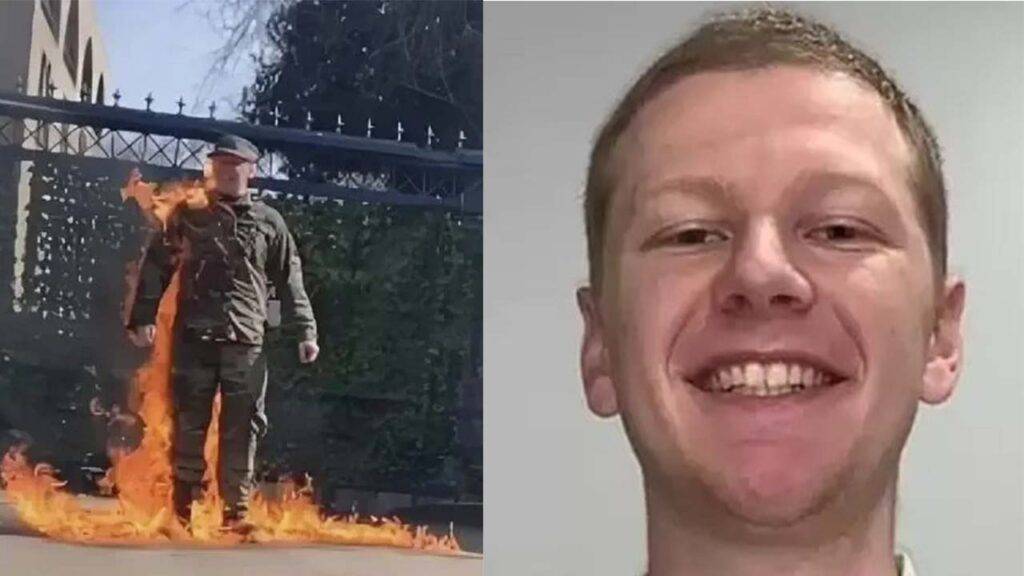The self-immolation of Aaron Bushnell outside the Israeli embassy is a poignant reminder of the complex dynamics at play in the Israel-Palestine conflict.

While his actions may have been extreme, they underscore the urgency of addressing the underlying issues and finding peaceful resolutions. As the world grapples with the aftermath of this tragedy, it serves as a call to action for dialogue, understanding, and meaningful change.
Aaron Bushnell Self-Immolation
The recent self-immolation of Aaron Bushnell, an active-duty member of the U.S. Air Force, outside the Israeli embassy in Washington, D.C., has shocked and saddened many.
Bushnell’s act of setting himself on fire was a desperate protest against what he described as the “genocide” of the Palestinian people amid the ongoing Israel-Hamas conflict. This tragic event has sparked discussions worldwide about the nature of protest and the underlying issues driving such extreme acts.
Who Was Aaron Bushnell?
Aaron Bushnell, a 25-year-old DevOps engineer based in San Antonio, Texas, served in the U.S. Air Force. He was identified as the individual who set himself on fire outside the Israeli embassy. Bushnell’s actions, while shocking, highlight the depth of emotions and convictions surrounding the Israel-Palestine conflict.
According to reports, Bushnell was wearing fatigues when he set himself on fire outside the embassy. Law enforcement and security personnel on the scene attempted to intervene, but Bushnell proceeded with his act of protest. Before igniting himself, he shouted “Free Palestine” repeatedly, echoing his sentiments about the ongoing conflict.
Before his self-immolation, Bushnell sent a message to media outlets outlining his intentions. In his message, he expressed his deep concern for the plight of the Palestinian people and his refusal to remain silent in the face of what he perceived as injustice.
His act was a stark reminder of the lengths to which individuals may go to draw attention to humanitarian crises and perceived acts of oppression.
Aaron Bushnell Livestream Video
Bushnell utilized social media platforms to amplify his message. He posted on Facebook and attempted to livestream his protest on Twitch, a web-broadcasting platform. However, his livestream was taken down for violating community guidelines and terms of service.
This highlights the complex relationship between social media, activism, and the limitations imposed by online platforms.
Bushnell’s self-immolation has reverberated globally, sparking conversations about the Israel-Palestine conflict and the ethics of protest.
Protests against Israel’s military actions in Gaza and U.S. support for Israel have intensified, with demonstrators expressing solidarity with the Palestinian cause. The tragedy has drawn attention to the human cost of conflict and the urgent need for resolution.
Self-immolation has a long history as a form of protest, with notable instances during the Vietnam War and the Arab Spring. While extreme, such acts are often borne out of desperation and a desire to bring attention to injustices. However, they also raise ethical questions about the effectiveness of such methods and their impact on individuals and communities.



